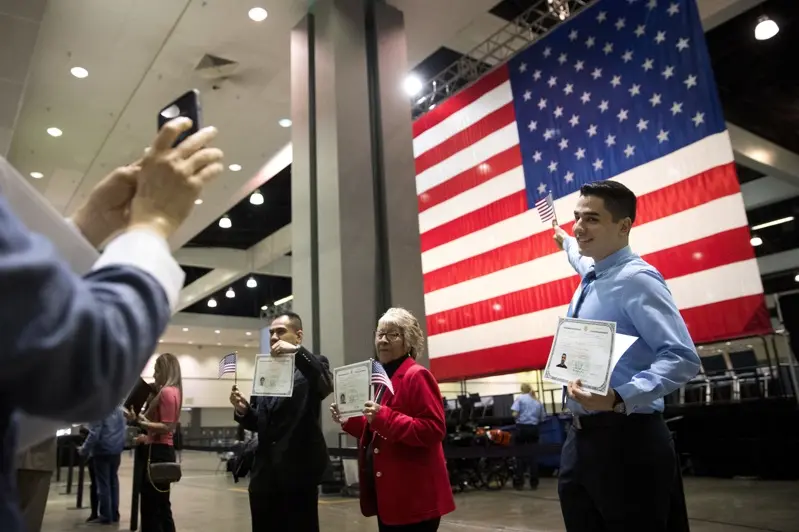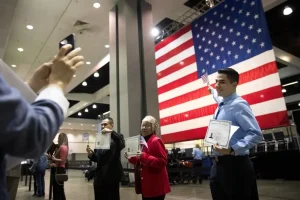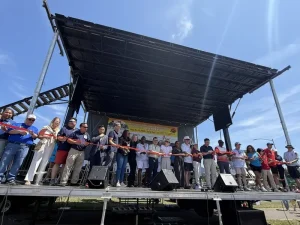H1B visa holders applying for green cards may be required to leave the country if their children turn 21 before approval, potentially losing their status under the Child Protection Act.
The Department of Homeland Security (DHS) has further tightened immigration residency regulations. Children who turn 21 while their parents are waiting for green cards will no longer be eligible for residency in the United States and may be forced to leave.

The Department of Homeland Security (DHS) has further tightened immigration residency regulations. Children who turn 21 while their parents are waiting for green cards will no longer be eligible for residency in the United States and may be forced to leave.
DHS announced on the 8th that it was reversing a policy implemented by the Biden administration since 2023. The most significant change in this policy change is that children of green card applicants (H-1B visa holders) who turn 21 while their parents are waiting for green cards will lose their legal residency status protected by the Child Status Protection Act (CSPA).
Pending applications will not be affected.
Newsweek reported that approximately 200,000 children and young adults may be affected by this policy change. The new policy guidance applies to permanent residency applications filed after August 15th and does not affect applications already in process.
U.S. Citizenship and Immigration Services (USCIS) is implementing a series of reforms to comply with President Trump’s order to strengthen immigration controls. This newly announced policy change directly impacts those protected by the Child Status Protection Act (CSPA).
Beginning in February 2023, former President Biden’s administration allowed some children to apply for CSPA as soon as their parents became eligible for green cards. Even if they aged out while their parents were waiting for their green cards, they would not lose their legal residency.
The Trump administration officially rescinded this extension on the 8th, stating that CSPA protections would revert to applying only to visas obtained through the State Department.
USCIS issued a press release stating that “the February 14, 2023, policy resulted in inconsistent treatment for aliens applying for adjustment of status within the United States and those applying for immigrant visas from outside the United States through the State Department.” USCIS noted that reversing this policy will provide a more consistent approval process for both adjustment of status and immigrant visa applicants.
Adjustment of status applications face long wait times, particularly for H-1B and other temporary visa holders. This means that dependent children of those applying for adjustment of status lose their lawful residency upon turning 21 and may be forced to leave the United States, even if they have lived there for years.
Doug Rand, a Department of Homeland Security official during the Biden administration, told Newsweek that many of these children grew up in the United States but are now pushed to the back of the green card queue.
Rand said, “In 2023, the USCIS team made a wise policy change to prevent further hardship for young people. Essentially, the government has the authority to allow certain individuals who are ‘overage’ to continue to follow their parents’ green card applications and maintain their immigration status. We chose ‘allow’; today, the Trump administration has chosen ‘not allow’.”
USCIS recently issued new guidance on the 4th, stating that federal immigration authorities can initiate deportation proceedings against immigrants who lack legal status and have applied for lawful permanent residency through their spouse or other family members. The new policy is effective immediately.







